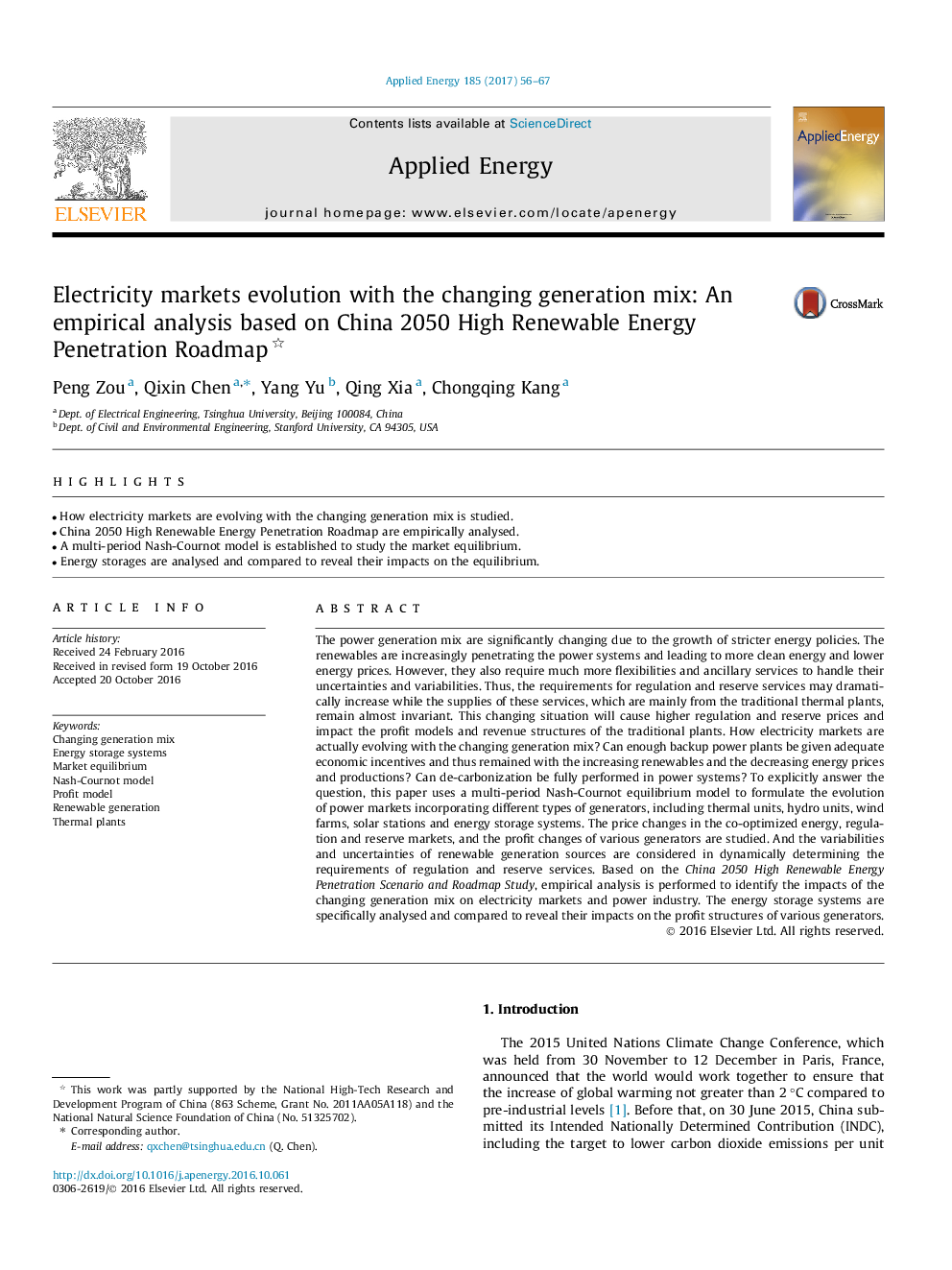| Article ID | Journal | Published Year | Pages | File Type |
|---|---|---|---|---|
| 4916955 | Applied Energy | 2017 | 12 Pages |
Abstract
The power generation mix are significantly changing due to the growth of stricter energy policies. The renewables are increasingly penetrating the power systems and leading to more clean energy and lower energy prices. However, they also require much more flexibilities and ancillary services to handle their uncertainties and variabilities. Thus, the requirements for regulation and reserve services may dramatically increase while the supplies of these services, which are mainly from the traditional thermal plants, remain almost invariant. This changing situation will cause higher regulation and reserve prices and impact the profit models and revenue structures of the traditional plants. How electricity markets are actually evolving with the changing generation mix? Can enough backup power plants be given adequate economic incentives and thus remained with the increasing renewables and the decreasing energy prices and productions? Can de-carbonization be fully performed in power systems? To explicitly answer the question, this paper uses a multi-period Nash-Cournot equilibrium model to formulate the evolution of power markets incorporating different types of generators, including thermal units, hydro units, wind farms, solar stations and energy storage systems. The price changes in the co-optimized energy, regulation and reserve markets, and the profit changes of various generators are studied. And the variabilities and uncertainties of renewable generation sources are considered in dynamically determining the requirements of regulation and reserve services. Based on the China 2050 High Renewable Energy Penetration Scenario and Roadmap Study, empirical analysis is performed to identify the impacts of the changing generation mix on electricity markets and power industry. The energy storage systems are specifically analysed and compared to reveal their impacts on the profit structures of various generators.
Related Topics
Physical Sciences and Engineering
Energy
Energy Engineering and Power Technology
Authors
Peng Zou, Qixin Chen, Yang Yu, Qing Xia, Chongqing Kang,
